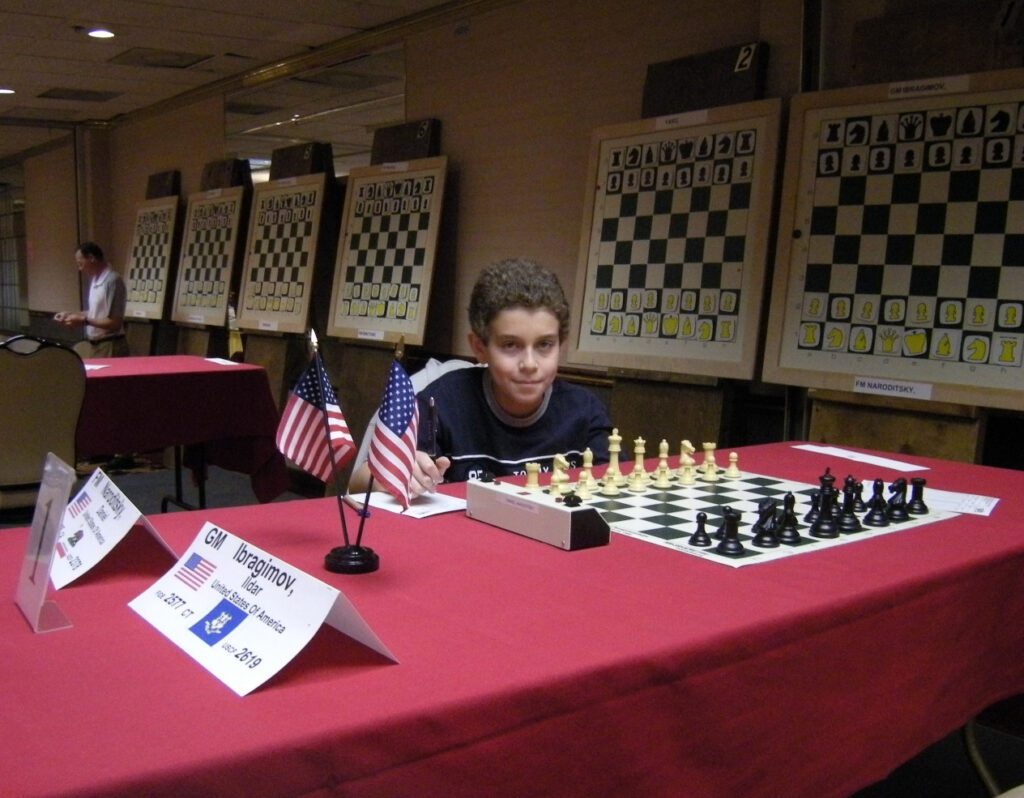You know something really unusual has happened when one of your Facebook friends who is not a chess player posts something about chess on your wall. “Have you heard about this?” she asked. “The New York Times has a new chess column.”
I did know about it, but just barely! Only one day before, one of my Facebook friends who does play chess had posted that Daniel Naroditsky is the new New York Times chess columnist. It’s wonderful news in many ways. First, Danya (the Russian nickname he usually goes by) is a friend of mine, both on Facebook and in real life. Also, he’s a product of the San Francisco Bay Area, probably the most talented player who has come from here except for Sam Shankland — and that’s saying a lot, because we have had so many prodigies. Third, he really seems committed to making a career out of chess, which is so hard to do. I have to think that his column for the Times will increase his visibility a lot and perhaps lead to new opportunities for him. And finally, he’s a really good writer!
Unfortunately, the current format of the column, called Chess Replay, looks as if it won’t really give him the space to exercise his writing muscles. It’s purely a puzzle type of column, to go with the Times‘s other puzzle-oriented offerings like Wordle and Spelling Bee. Here’s a look at his first daily column, featuring a nice combination by Josh Waitzkin. Still, even if it’s not a chance to write lengthy articles, this is a foot in the door for Danya and for chess.
The first time I met or ever heard of Danya came in 2005, at the Far West Open in Reno. I had one of the best tournaments of my life, going 5.5 out of 6 to win the Expert section. Danya, who was nine years old at that time, also had a super tournament, going 5.5 out of 6 to win the Class B section. The tournament director, Jerry Weikel, had a small ceremony to award trophies to the class prize winners, so I had a chance to watch Danya getting his trophy. I remember that it was considerably larger than mine. Danya was also quite short at the time, so this was one of the proverbial cases where the trophy was almost as tall as the player! I remember thinking at the time, “This kid will probably be better than me before long.”
Boy, was I right about that one! Danya had already passed my rating within two years. He had a spectacular result in 2007 when he won the world under-12 championship.
My next encounter with Danya was a delightful surprise. His father, Vladimir, contacted me the next year, saying that Danya had written a chess book, and he asked if I could do a little bit of editorial polishing. His book, Mastering Positional Chess, is surely the most sophisticated chess book ever written by a 13-year-old, and Danya really did not need a whole lot of help from me. He subsequently wrote another book called Mastering Complex Endgames that I also helped on, again mostly with the language and organization rather than the chess. I’m a little bit surprised that Danya has not written any more books after those two, but perhaps it’s because he put so much work into them and the marketplace for chess books is not very remunerative. Also, not too long after the second book came out, he went off to college at a place you might have heard of, Stanford University. I don’t think that his schedule of classes left him very much time for writing books.
The only time I ever played a tournament game against Daniel was at the 2009 Western States Open. I took a photo of him before his third-round game against the eventual tournament winner, Ildar Ibragimov.

Little did I realize that I would play Danya two rounds later! I remember the game very vividly because Danya totally outplayed me and my position was going down the drain, but then he blundered a pawn and all of his winning chances went out the window. He was still very young, as you can see, and he did not have a poker face. When he saw his mistake, his head dropped. Although I try not to pay too much attention to “tells,” his reaction made it as clear as could be that this was not an intentional pawn sacrifice but just a blunder. We agreed to a draw a few moves later. That was a very nice result for me, because he was already rated nearly 300 points higher. I went on to win in the final round for a final score of 4-2, a big money prize, and a 61-point rating gain, which is (I think) my largest rating gain in one tournament since 1991. Thank you, Danya! I owe you one!
I’m glad to say that Danya’s disappointment in that game did not derail his chess career. He earned his grandmaster title four years later. And now he is stepping into the footsteps of another legendary grandmaster and New York Times columnist, Robert Byrne. Let’s hope that he keeps his column going for 34 years, as Byrne did!



{ 1 comment… read it below or add one }
It’s a shame if the NYT format will continue to be so limited so as to allow for only the briefest of commentaries. Naroditsky has become a very good writer, and I miss his endgame column in Chess Life. Talk about having big shoes to fill there (Pal Benko’s)!